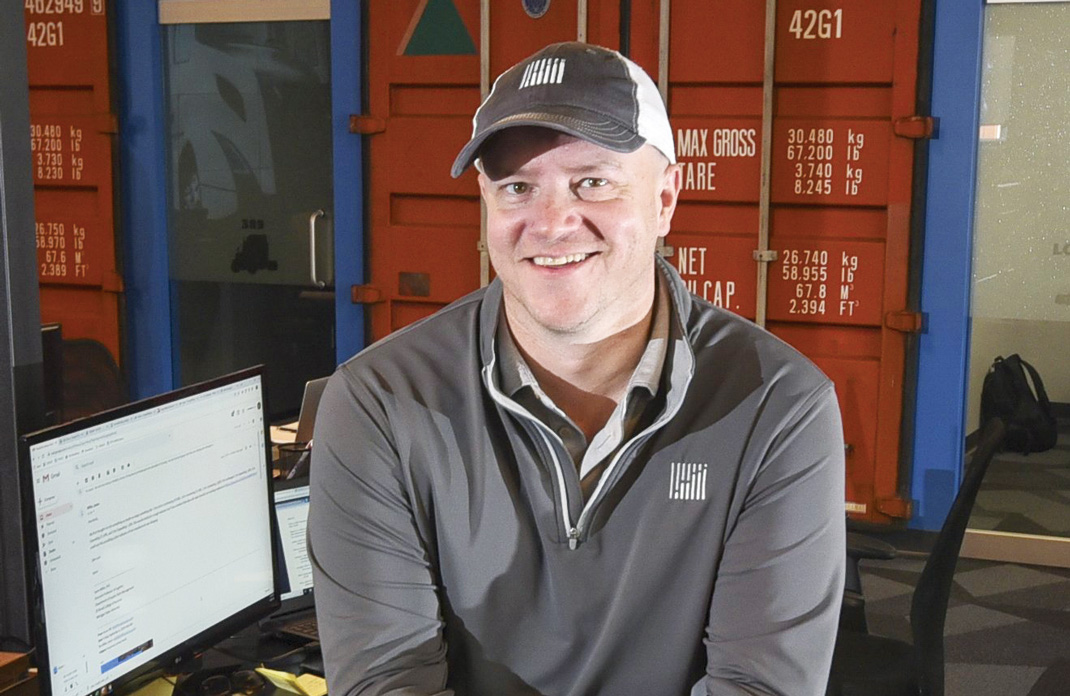From its early days, Chattanooga's riverside location offered a major economic advantage as a transportation hub for boats and barges.
As the railroad system emerged during the Civil War era, the city became known as a key crossing point for moving goods. Afterward, the same rail system contributed to the city's growth, propelling it to become one of the Southeast's largest, most important locations for connecting people, products and ideas.
Today, Chattanooga is widely known as "Freight Alley." Situated at the intersection of Interstates 75 and 24, the city has become a critical logistics hubs for the nation, located within a day's drive of 60% of the population.
Over the years, Chattanooga has served as the launching pad for several trucking companies, including a couple that have grown to become two of the largest in the nation -- Covenant and U.S. Express.
But the journey is far from over. With the rise of e-commerce and the demand for speedy deliveries, the logistics industry is continually evolving -- exploring innovative business ideas like electric vehicles, automated driving and drone delivery.
Santosh Sankar, Dynamo Ventures managing partner
"The balance of the decade will bring with it a massive rewrite of global supply chains and opportunity, to boot. Key industries such as semiconductors, batteries, pharma, and advanced materials will be reshored or friendshored in the name of sovereignty and national security.
I'm not saying that globalization will unravel, but that it will be "refined" with the added parameter of risk rather than a "brute force mentality" of taking everything overseas (to China). I believe that the last time we saw such an opportunity in the U.S. supply chain was around the Second Industrial Revolution from 1870 to 1914. There is a multi-billion opportunity to capitalize on this shift but with a technology-first angle."
Craig Fuller, FreightWaves
"We're going to see more of the continuation of digitization. AI is going to be a factor in how freight is managed and routed, with more implementation of robots in the workflow. But logistics will play an even more important role than it has in the past.
We have the re-industrialization of the Americas that's going to make trucking and rail far more important over the next decade than it has been in the last two. Companies are moving production back to places like Mexico and the U.S. because of the cost of production in countries like China. Companies are prioritizing products made closer to home, and so there is more focus on moving products closer to home.
I think we'll see less movement by ships, and more on trucks and land. Companies that are currently located here, will continue to thrive. The talent that is here will still be based here.
The cycle will continue."
Jason Provonsha, Steam Logistics
"(As of May), we are entering month 26 of the current freight recession, which is eight months longer than the one we saw in 2007 and 2008 during the financial crisis. We believe the bottom of the market is now behind us, yet there have been few signs of recovery to date.
Most people expect to see some marginal improvement throughout the rest of the year with a full market recovery coming in 2025. Most cycles in freight run 12 to 18 months, so we are bullish through 2026.
Zooming out a bit, I think a big learning from the past few years is that the venture-backed technology companies who have touted their technology as a way to disrupt the industry and to disintermediate the third-party logistics space have come up short. ... I think there is broad agreement that while technology is important, there is a shift in thinking that it must be used to in the service of moving physical goods, not replacing the people to do the work effectively.
Looking into the horizon, we are investing heavily in technology to drive efficiency, do more through automation, and arm our teams with tools that make them more effective."
Bridgett Massengill, Thrive Regional Partnership CEO and president
It's no secret that Chattanooga is a city that's on the move.
"And as we grow, we want to make sure change doesn't happen to us, but happens by us," says Bridgett Massengill, CEO of Thrive Regional Partnership, a nonprofit dedicated to regional development planning.
One of Thrive's main objectives is to address transportation and infrastructure challenges while preserving quality of life and natural resources. The organization works to collaborate with leaders from various sectors across a three-state region to plan for future growth.
The Chattanooga region is known as a critical hub in the logistics-dependent manufacturing industry, Massengill says. About 42% of the jobs in this region are within the manufacturing, trade and transportation sectors.
According to the Tennessee Board of Regents, there will be a projected 21,396 openings in transportation and logistics jobs in the state over the next 10 years. But between 2022-2023, there were only 3,143 students enrolled in community college and TCAT programs across Tennessee.
"That's a massive gap," says Massengill. "And many people believe the figure of projected job openings is an understatement because of the robust future of this area.
"We've got to move freight through this region in multiple ways, and we need a workforce prepared to meet that demand."



